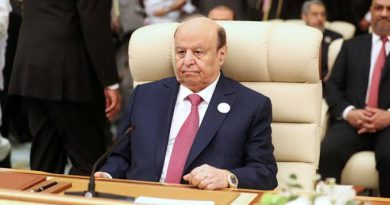Hagia Sophia: There is nothing Islamic about ideologized opportunism
by Youssef Deeni
The early Muslim conquerors did not attack the churches and temples of others before the emergence of the Ottomans and, later on, the rise of terrorist extremist groups.
When studying the root of what Turkish President Recep Tayyip Erdogan has done in turning the Hagia Sophia back into a mosque, we must not stop at the political insight into it. Rather, we should also highlight that what he did is not Islamic, even if his motive reflected despair due to his catastrophic failures in political diplomacy and even if the move was an attempt to create a publicity stunt through crafting and exporting crises. On the contrary, this behavior contradicts Islam’s tolerance, which was achieved throughout history by preserving the temples of other religions and maintaining a positive attitude toward monuments. Our pious predecessors and early Muslims preserved the cultural icons of other civilizations during their conquests.
Islam did not take a negative stance toward monuments. Conversely, they were considered lessons mentioned in the Holy Qur’an and the Prophet’s Sunnah (tradition). They were also at the disposal of the early Muslims, who preserved the cultural and heritage features of other religions. It can be said that the distinction between monuments, with their historical value and paganism, was evident in the Islamic perception of them. Idols were destroyed in the stage of establishing Islam for a great purpose, which is to worship God alone, but cultural relics were not worshipped. The latter carried the knowledge of others and conveyed many lessons, reflections and benefits, prompting the Prophet’s companions and those who followed them to preserve these monuments and relics. In addition, they made use of them in science, history and knowledge of the ancient arts of architecture and engineering.
On the other hand, leaving these monuments and relics of other, non-Islamic civilizations reflects the wisdom and good advice that does not prevent them from converting to Islam voluntarily, as “there is no compulsion in religion” (Al-Baqarah 256). Harming those monuments is a kind of compulsion, which God did not allow, as He made those monuments a proof for people and wanted them to stay. God said: “Have they never journeyed through the land and seen what was the end of those who have gone before them? They were stronger than themselves in might and left firmer traces upon the earth; yet, whatsoever they earned did not help them” (Ghafir 82).
Journeying through the land here means questioning, reasoning and searching for evidence and lessons in the monuments of those who preceded us. And both verses are related to what was stated in verse 80. The Almighty said: “And there are advantages for you in them, and that you may attain thereon a want which is in your breasts, and upon them and upon the ships you are borne” (Ghafir 80).
Preserving relics and historical monuments is part of the great Islamic purpose of presenting the merits of Islam that brought beneficence. God said: “And do not abuse those whom they call upon besides Allah, lest exceeding the limits they should abuse Allah out of ignorance” (Al-An’am 108). There is no doubt that destroying relics or transforming historical monuments in countries with many sects of different religions has a worse impact than mere insults, which is a passing stance. The destruction of monuments, converting churches or causing damage to them is a permanent, irreversible thing. God did not command us to eradicate the signs He created for people to learn of His existence. And this is an important part of the tolerance of Islam, which complements and also accepts the cultural specificities of others without prejudice or harm.
Nations’ monuments, including churches and non-Muslim places of worship, were respected, cared for and preserved throughout Islamic history, before the moderate concepts of Islam were hijacked in modern times in favor of extremist discourse. The book “Miftah Al-Saada” (The Key to Happiness), which is one of the most comprehensive references for the arts, said of archaeology: “It is a science in which one studies the religion and life-related words, actions, and stories of the established scholars, including the righteous companions, successors, and pious predecessors. This is the best degree of what is understood from the word monuments by the early Muslims and the late classifiers when archaeology is mentioned.”
The principle adopted by Muslim scholars and jurisprudence in preserving the monuments, churches and temples of other religions is by inferring the purposes of the Shariah mentioned in the Qur’an and through “practice.” The early Muslim conquerors did not attack the churches and temples of others before the emergence of the Ottomans and, later on, the rise of terrorist extremist groups.
Islam instructed its followers to leave people and their chosen religions alone. They were not forced to convert to Islam and were allowed to practice their religious rites in their places of worship. For this purpose, Islam ensured the safety of their places of worship, provided them with special care, and prohibited all forms of assault against them.
The Prophet’s Sunnah ensured that. Prophet Muhammad wrote to the bishop of Banu Al-Harith bin Kaab, the bishops of Najran, their priests, and their followers that “whatever they have is theirs, no matter how big or small — sales, prayers, and monasticism — and they have the pledges of God and His Prophet that no bishop, monk, or priest shall be removed from his position, nor will any of their rights, authority, or customs be altered. If any of them requests that any right of his should be given to him, justice shall be administered among them. They will not be burdened by injustice or oppressors.” This was narrated by Abu Ubayd Al-Qasim bin Sallam in the book “Al-Amwal.”
The fact is that Islamic Shariah law provided for the safety of the people of the book and ensured they could perform their worship safely. This requires that the churches and places of worship be preserved, not demolished or vandalized, in addition to allowing the followers of other religions to build churches and other places of worship whenever needed. Authorizing something is authorizing what is complementary to its means, as Imam Abul Fateh bin Daqiq Al-Eid wrote in “Ihkam Al-Ahkam: Sharh Umdat Al-Ahkam.”
We cannot reconcile converting churches with Islam’s recognition of dhimmi communities’ right to continue to follow their own religions and perform their rituals, and this includes building places of worship if they need to. As long as Muslims accept the citizenship of non-Muslims, live with them, let them practice their religions, and protect their holy places and places of worship, they should strive to provide them with places of worship and safety to perform their rituals.
In the Year of Delegations (9 AH), the Prophet allowed the delegation of Najran’s Christians to pray in his mosque. A mosque is a Muslim house of worship, so that is all the more reason to preserve other religions’ own places of worship, in which they can perform their rituals. Muslims approved their staying in their houses of worship if they needed to, and pledged to not attack or convert these places.
One of the most important means of understanding Islam’s position is “how Muslims performed their work,” especially in the early ages, during which actual practice took place. Since the early ages and the eras of the Prophet’s companions and successors, Muslims performed their work through their honorable history, pure civilization, and noble, tolerant ethics.
The trick Erdogan is now employing is not new. It occurred in Islamic history, and it is an attempt to pressure other nations through their civilizations, deliberately provoke them, and tamper with sentiments. This happened in the same manner in the Roman Empire. Historian Mohammed Kurd Ali wrote in “Khoutat Al-Sham:” “The reason for this was mostly the persecution of Muslims in Rome. Muslim kings did not find a way to alleviate the evil inflicted on their Muslim subjects, so they put pressure on the Christians on their territories and influenced Christian kings by hitting them in the heart in the churches they loved in Jerusalem. How similar tonight and yesterday are.”
Article first appeared on Arab News.
Youssef Deeni is a political science researcher. Twitter: @aldayni



